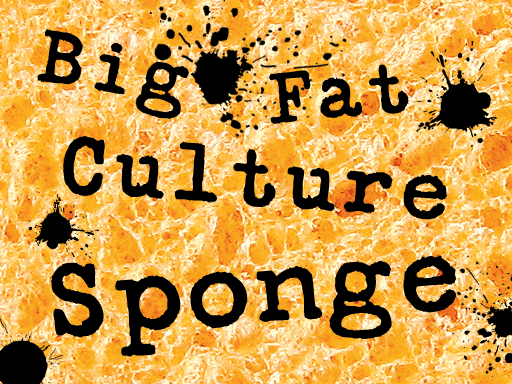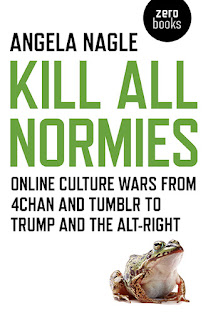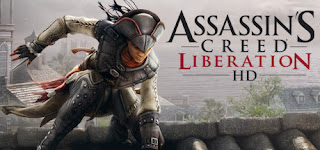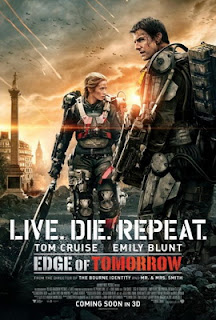Tuesday, March 20, 2018
The Government put Tumblr in the water and turned all the Frogs Fash!
I made a conscious choice to disengage from the online culture wars and progressive identarian spaces some time ago. There are several reasons for this, but probably the two most pressing ones were a feeling of utter futility, and the sense of a new hierarchy being created, but an inverted one to the ones were were used to. Powerlessness became power, fragility became strength, mental illness became a badge of honour, and to be the most oppressed person in the room also had meant you were automatically given the biggest platform.
There are understandable reasons for this, and some I will still stand by today, but at the same time, it was hard not to recognize that the culture had become so toxic as to completely disengage from the wider public and, indeed, reality. As soon as it became common practice for people to refuse to explain themselves, their positions, or their perspectives from even the slightest inquiry, the writing was on the wall - this was a dead end. A movement that refuses to seek out new adherents will not survive, and indeed I believe it is currently in its death throws. But the problem there, is that in a complete rejection of proselyting , and in their completely rigid hierarchies, they alienated a lot of people. Mostly young, mostly men, mostly white, - there was never really a strong place for them except way in the back, and that would only be if they accepted without question whatever the identarian dogma of the day was. Again, to an extent, this is understandable, but that human capital has been ceded to other actors - and flying under a banner of free speech and iconoclasm, they have embarked on a project to tear down the modern world.
Angela Nagle's book, Kill All Normies, brings back a lot of memories of this time, covering movements in the online culture wars from the original techno-Utopian ideals that were placed upon the information revolution as a means of fighting injustice as inspired by Middle Eastern uprisings at the turn of the last decade, all the way up to the recent election of US President Donald Trump. But this is not a history - in is instead, a tour guide, a primer, presenting the reader with the manifold aspects of what is now called the Alt-Right, and their most hated enemies, online social progressive and feminist movements mockingly dubbed 'Social Justice Warriors'.
The book largely focuses on the emergence of the Alt-Right, a blend of ethno-nationalism, hyper-masculinity, elitism, nihilism, bitterness, resentfulness, and hate. It speaks of the shift of the traditionally far more anarchic online forum 4chan into the nucleus of a contemporary authoritarian political movement, and of the wider eco-system of Masculine movements, geek culture gatekeeperism, and antiestablishmentarianism towards both sides of the political aisle. In probably the least interesting chapter, in details the philisophical underpinnings of the movement that its adherents have consciously or unconsciously picked up, from the Maqui De Sade, to Antonio Gramsci, even giving a brief acknowledgement t to Russian Neo-Fascist Alexander Dugin. Though nominally positioning itself as right wing, Nagle describes how the Alt Right positions itself against more traditional conservatism and even capitalism, which have long been the underpinnings of the right wing in the West, deriding right wing philosophies preceding them as failure that have sold out their societies to appease - well, the conspiracies that proceed from there go to all the usual places.
But in addition, it also presents one to what some (including myself) have dubbed 'Tumblr culture', after the online forum from where it emerged - how it positioned itself as a movement aimed at platforming socially marginalized people, how it because almost narcissisticicaly obsessed with personal identity, and how that culture spilled out into American college campuses. The later part I can give no great account on, as my experiences in Australian campuses have been pretty tame, but one strong connection the book draws between the 'Social Justice Warriors' aka 'SJW's of Tumblr and the Alt-Right is the mastery of online spaces free from traditional media, and a complete undercutting and distaste for establishment politics.
Overall, as someone who is fairly familiar with a lot of these stuff, the book doesn't offer too much insight to me, though I do agree with its central thesis that if left wing values of egalitarianism, freedom, and peace are to be carried forward from this point on, a severe shift in direction is needed. I think its already began to an extent, as there's been a swing in a lot of left wing spaces back to material matters. I also wonder at the long term health of the Alt-right which, at the time of writing, is splintering and factionalizing. Though I don't believe the threat has passed, I do think that as a political project it cannot sustain itself without an appropriate enemy to focus on, and whilst the voices of the 'SJWs' get quieter every year, it has not yet found a new fetishized enemy with which to sustain itself with the same frenzy.
The book's a pretty light read, so I think my primary recommendation would be for people who are only tangentially aware of the online culture wars currently unfold and the part they had to play in the rise of the Alt-Right. If you have a healthy knowledge of this topic, however, don't expect any great revelations..
Wednesday, July 13, 2016
A guide I wrote for O week at uni, It's pretty silly, but is collected here regardless.
OH
NO YOU'RE AT UNI AND YOU'RE STILL OBSESSED WITH THE POKEMANS.
(A brief note on managing your time and money at uni)
(A brief note on managing your time and money at uni)
Face it kid, you're obsessed. You're an addict. And that's all well and good - noble profession, addiction. However, a new problem arises - you're at uni. You have other demands on your time. All those lessons and tutorials, those workshops and labs, and worse yet - you actually have to do a lot of the work under your own aegis. ZOUNDS. So I guess it becomes a matter of priorities - I mean, obviously you can't put aside your addiction for the sake of your academic career. Let's not waste time with the ridiculous. You have an obsessive tendency - you are damn well going to make time for that.
So what are you options? Well obviously a big part of managing your time is going to be related to cost - I mean, whatever your obsessive interest is, it ought to be something you can afford (or learn to afford). I'm going to make an assumption that your funds aren't limitless - I mean, unless your obsession is horse rearing or your collection of solid gold cars, in which case your problems are beyond the scope of this article to address (also, I hate you). So let's just assume you're working part time, or living off your student allowance (or whatever scraps of cash your parents want to throw your way). Obviously, living costs are important (remember, you need to be alive to indulge your obsession), and when you factor in rent, transport, food etc you're probably not going to have a lot left over. So what do? I mean, if your obsession is something like chewing paper that's probably easy to squeeze into a budget, but if you have a more pedestrian interest like, say, books, films, or video games, even minor expenses can pile up. For this kind of thing I'd suggest buying everything online - there are numerous stores that give great deals on these products. Also don't be afraid to buy second hand. Fairly obvious. Also I'm pretty sure you're going to pirate stuff. Fine. Whatever. You can work on your karma later.
One advantage about uni is that, unless your obsession is something like, say, only eating the eggs of the Komodo dragon, it's very very likely you're going to find other people on campus who share your obsession, allowing you to make very superficial connections with all sorts of people! Put up posters, create a club, just talk loudly about whatever it is you like in class, and eventually you'll probably bump into a like-minded person. This is also useful because they may give you access to your stuff, and open doors for you that you had never considered before, feeding your sick habit. You'll start to feel more like a normal citizen, and less like a freak with an unhealthy attachment. This is an illusion - you are still a freak with an unhealthy attachment, but that's okay, because now your feelings are normalized for you.
A clever person will actually partition their time, sensibly dividing their attention between their work and their hobby. You're probably not that clever. However - and this is something you may not want to hear - there may be long stretches of time where you simply cannot justify your indulgence. This is actually probably beneficial long term - you'll learn to corral that tendency, maybe even make it work for you as an incentive (if I finish this fifth essay I'll finally allow myself 30 minutes to watch the first quarter of the latest David Fincher film! Hooray!). Know your mind, understand its workings, and push yourself into a state of hyper anxiety because you feel guilty even looking at your dog-eared copy of Storm of Swords.
Of course, even if you
can balance this work/obsession to a degree where you are actually
able to give the appearance of being a functional human being, be
aware that this will probably go out the window when/if you end up
hooking up with a partner. At that point your only option is to start
to let go of your tight grip on the hobby that has kept you warm on
those long, lonely nights at sea. Or perhaps convert your significant
other. Personally I always preferred the way of the hermit, but I'm a
bitter old crank, so if you don't want to end up like that, perhaps
work on being a well-rounded human being who actually can
deal with having uni, a life, and a secret, focused shame. Or make
some other interests. Try train spotting, it's pretty low stress. I
guess what I mean is - despite my opening paragraph, your priorities
are probably going to shift. And that's okay. There's a little piece
of your heart that will be forever obsessed with Pokemon slash
fiction - you'll just fill it with other things, too.
This article first appeared in Empire Times magazine
https://empiretimes.com.au/
This article first appeared in Empire Times magazine
https://empiretimes.com.au/
Assassin's Creed Liberation
Assassin's Creed Liberation
Ubisoft's Assassin's Creed 4 is the AC game getting the most attention right now, and rightly so. However, also available now is a port of a year old PlayStation Vita game, that's had a bucket of HD paint sloshed over it, getting all the visuals slick and gooey. Some of that stickiness is also squishing some frayed bits of code together, fixing a lot of old bugs. They've also added some new missions and items, but nothing too major. POINT IS - this is probably the biggest, best looking version of the title we're likely to see. But does that make it good?
Answer: eh, kinda? I mean, let's face it, Assassin's Creed is a series that, for me at least, is defined by disappointment. It never ever really shakes out the way you'd like - even this game's most interesting feature, the persona system (which, because of your protagonist's unique social situation of being the daughter of French merchant and and African slave allows her to assume the identity of either an Assassin, a Lady and a Slave) does not really translate into many interesting options as far as actual gameplay goes. And the core experience is still a bit shaky, but like a beloved arthritic family dog, it's a shaky thing we're rather familiar and somewhat comfortable with - go here, kill that, steal this, run away etc etc,. Side quests abound, of course (because what's AC without padding?), and if you're going for 100 per cent completion there's a decent amount of stuff to do. But at the end of the day, what we have is an AC title that's been stripped down - more confined, reduced scope, less options, but also less fat. A leaner, cheaper product. The core experience is the same as it ever was (with some ACIII trappings), so if that's your bag, you could probably do worse for the price.
This review first appeared in Empire Times Magazine
https://empiretimes.com.au/
Labels:
Assassin's Creed Liberation,
Aveline,
HD,
PS3,
Stealth Action,
Ubisoft,
Vita
Bioshock Infinite: Burial at Sea
There'll
Be No Accusations, Just Friendly Crustaceans
Bioshock Infinite: Burial At
Sea
Last
year's Bioshock Infinite
was one of the most interesting story-driven titles of this
generation. It had
its problems, but the plot managed to hold most players attention as
it careened towards a rather confusing (and seemingly definitive)
conclusion. Burial at Sea
seeks to continue this story, however, shifting things back to where
the series began, in the underwater Objectivist utopia of Rapture.
Burial presents players with a two-part adventure staring the protagonists of the Infinte, Booker DeWitt and Elizabeth. Though the setting shift from cloud city to the underwater city is probably the biggest and most obvious difference to the main title, there are actually a few twists on the original's formula. Instead of only being able to carry two weapons, both characters can now carry around a small arsenal, with the trade off of having very limited ammunition and resources. This makes for the biggest change, as trying to go in all guns blazing as you would in the main title will quickly see you dead. You are now presented with a number of stealth options, and actively encouraged to use them. The problem with this, however, is that it seems clear that the engine wasn't really built around stealth mechanics, and so much of these segments feel a little stiff and awkward.
That said, if you've enjoyed the series thus far, Burial at Sea is packed with references to the previous games, giving the player a new insight on some events, as well as some background information. It's clear that it was written for the fans, and people already in love with the franchise may find the rougher edges of the the title easier to forgive. It really does bring the whole story full circle - you just have to decide if a bit of closure and fan service is worth the slightly awkward play style.
Burial presents players with a two-part adventure staring the protagonists of the Infinte, Booker DeWitt and Elizabeth. Though the setting shift from cloud city to the underwater city is probably the biggest and most obvious difference to the main title, there are actually a few twists on the original's formula. Instead of only being able to carry two weapons, both characters can now carry around a small arsenal, with the trade off of having very limited ammunition and resources. This makes for the biggest change, as trying to go in all guns blazing as you would in the main title will quickly see you dead. You are now presented with a number of stealth options, and actively encouraged to use them. The problem with this, however, is that it seems clear that the engine wasn't really built around stealth mechanics, and so much of these segments feel a little stiff and awkward.
That said, if you've enjoyed the series thus far, Burial at Sea is packed with references to the previous games, giving the player a new insight on some events, as well as some background information. It's clear that it was written for the fans, and people already in love with the franchise may find the rougher edges of the the title easier to forgive. It really does bring the whole story full circle - you just have to decide if a bit of closure and fan service is worth the slightly awkward play style.
This review originally appeared in Empire Times Magazine
https://empiretimes.com.au/
Captain America: The WInter Soldier
Cold,
Cold Heart
Captain America The Winter Soldier
Trying to review this film seems fruitless - not because this film in some way defies description, or because that nothing one review says is going to affect the film's no doubt spectacular financial success (though that part's definitely true); no, it's because this film essentially does everything it needs to. It's not a perfect film, not even a perfect action film, but it's absolutely a perfect product - it ticks every box, crosses every t, dots every i, and you'll almost certainly have a good time with it. What makes it frustrating is that there's little to really criticize about the film itself, and I have two hundred more words to fill out here. You'll pay for this, Captain America!
But regardless, a basic rundown: Captain America: The Winter Soldier picks up where The Avengers left off, following the recently unfrozen Steve Rogers in an espionage-themed adventure. The creators wisely realize that Rogers is a bit too simple and unconflicted a character to carry the whole story by himself, so he's accompanied by several allies with their own arcs, making it more of an ensemble piece than a Captain America film.
The action is clearly shot and fun to watch - you always know what's going on on screen, and there are some inventive sequences. The film moves away from most of the anachronistic mad Nazi science elements of the first film, and plays things in a (relatively) more grounded fashion. Really, there's not much more to say. The film is almost the living embodiment of 'solid', and as far as commercially produced super-hero action fare goes, you're unlikely to see better. Ideal popcorn entertainment, perhaps lacking a bit of imagination or emotion, but you'll probably have fun.
This review first appeared in Empire Times magazine
https://empiretimes.com.au/
Edge of Tomorrow (Live. Die. Repeat)
You Can (Not) Advance
The
unfortunate fact about reviewing a film that stars Tom Cruise is that
it stars Tom Cruise - his off-screen antics so overwhelm whatever
credibility he has as a leading man that it gives both a reviewer and
(I imagine) the general public an odd feeling when saying anything
positive about him. And yet, Cruise does a reasonably solid job in
the rather enjoyable science fiction action film Edge of
Tomorrow, forcing myself into
this uncomfortable situation. So thanks a bunch, Cruise - your
ability to turn in a decent (if unchallenging) performance means I am
left without the option to make fun of this film for the next five
hundred words. Now what on earth am I supposed to talk about?
I
suppose it's best to start with the premise: Edge of
Tomorrow is a science fiction
action/war movie, based on the Japanese light novel All You
Need Is Kill, which I think we
can all agree is a far superior title to the rather generic one we've
ended up with. Bizarre tentacled aliens are invading Earth and
threatening humanity with extinction, so it's up to an alliance of
nations to come together engage in a conflict that looks oddly like
World War 2, only with more powered exoskeletons and writhing wiggly
things. Army PR-guy and smarmy coward Cage (Tom Cruise) is forced
onto the front lies after a rather spectacular display of ill-advised
arrogance, and after running around in a panic for a few minutes he
is promptly (and rather gruesomely) killed. That's no real spoiler,
however, as immediately afterwards Cage snaps awake, forced to relive
the day of his death again. And again. And again. And so the
interesting part of the film begins - a cross between Starship
Troopers and Groundhog
Day. where Cage must use
whatever information he gains each time he time he dies in order to
survive a little longer next time around. With the aide of bad-ass
war hero Rite Vrataski
(Emily Blunt),
Cage must used the constant repeating time loops to figure out a way
to stop the invasion and save the Earth.
What makes the film
fum is the combination of character development mixed in with the
Groundhog Day
gimmick - though Cage's attempts
to advance and improve his circumstances are constantly thwarted, he
slowly but surely grows as a character - by harsh necessity he is
forced to become more selfless, heroic, and competent as the loops
continue. Given that his purgatorial situation is bought on by his
own initial selfishness, it's somewhat fun to watch. Though not as
much fun as his repeated, and almost slapstick array of deaths he
suffers. Cruise's death-yelp made me chuckle a bit more than it
probably should have. Rita's a fairly fun character as well - a
complete badass, utterly resigned and world-weary, and Cage's
superior in just about every way, but without the in-your-face
arrogance that often comes with such characters. Also present is
Bill Paxton as a loud mouthed Sergeant, which I mostly mention
because I just like to know that the man's working.
This review was first published in Empire Times Magazine
https://empiretimes.com.au/
Jazzpunk
Jazzpunk
What
the Hell did I Just Play?
Jazzpunk is a comedy adventure game produced by Canadian indie outfit Necrophone Games, and published by Adult Swim. That's about all I can say about this game with any sense of objectivity, as your enjoyment of this title, perhaps more than anything else I've played in recent years, is so incredibly dependent on very specific tastes. To be particular - it's a comedy driven title, so if you enjoy the humour, you'll have fun. If you don't, you won't. I was one of the people who didn't, but maybe there's an audience for this sort of thing who'll enjoy the whole experience a lot more than I.
The game is ostensibly set in a alternate Cold War 60's, populated by robots and other anachronistic technologies. You, as Agent Polyblank, are tasked with carrying out a series of vaguely-espionage themed missions aimed at... saving the world... I guess. Really, the premise is nothing more than a set up - a vehicle to place the gamer in front of as many computer-puns, surreal gags and pop culture references as possible. The actual interface and gameplay are very simple - you're given free reign to wonder around areas to solve your task, and there are a few skill and puzzle based sections, but nothing terribly taxing. Mostly you'll be moving through a world of whoopie cushions, spit-takes, vomiting seafood, robots falling over, and non-sequiters, before you eventually emerge at the end of the game, squinting in the sunlight, wondering what on earth just happened.
It's best described as taking the formula of Dear Esther and Gone Home and giving it an extremely surreal comedic twist. Fans of Family Guy and Archer might want to take note. Every one else might want to give it a miss.
Jazzpunk is a comedy adventure game produced by Canadian indie outfit Necrophone Games, and published by Adult Swim. That's about all I can say about this game with any sense of objectivity, as your enjoyment of this title, perhaps more than anything else I've played in recent years, is so incredibly dependent on very specific tastes. To be particular - it's a comedy driven title, so if you enjoy the humour, you'll have fun. If you don't, you won't. I was one of the people who didn't, but maybe there's an audience for this sort of thing who'll enjoy the whole experience a lot more than I.
The game is ostensibly set in a alternate Cold War 60's, populated by robots and other anachronistic technologies. You, as Agent Polyblank, are tasked with carrying out a series of vaguely-espionage themed missions aimed at... saving the world... I guess. Really, the premise is nothing more than a set up - a vehicle to place the gamer in front of as many computer-puns, surreal gags and pop culture references as possible. The actual interface and gameplay are very simple - you're given free reign to wonder around areas to solve your task, and there are a few skill and puzzle based sections, but nothing terribly taxing. Mostly you'll be moving through a world of whoopie cushions, spit-takes, vomiting seafood, robots falling over, and non-sequiters, before you eventually emerge at the end of the game, squinting in the sunlight, wondering what on earth just happened.
It's best described as taking the formula of Dear Esther and Gone Home and giving it an extremely surreal comedic twist. Fans of Family Guy and Archer might want to take note. Every one else might want to give it a miss.
This review was first published in Empire Times magazine.
https://empiretimes.com.au/
https://empiretimes.com.au/
Labels:
adventure,
Indie,
Jazzpunk,
Necrophone Games,
puzzle
Subscribe to:
Posts (Atom)









